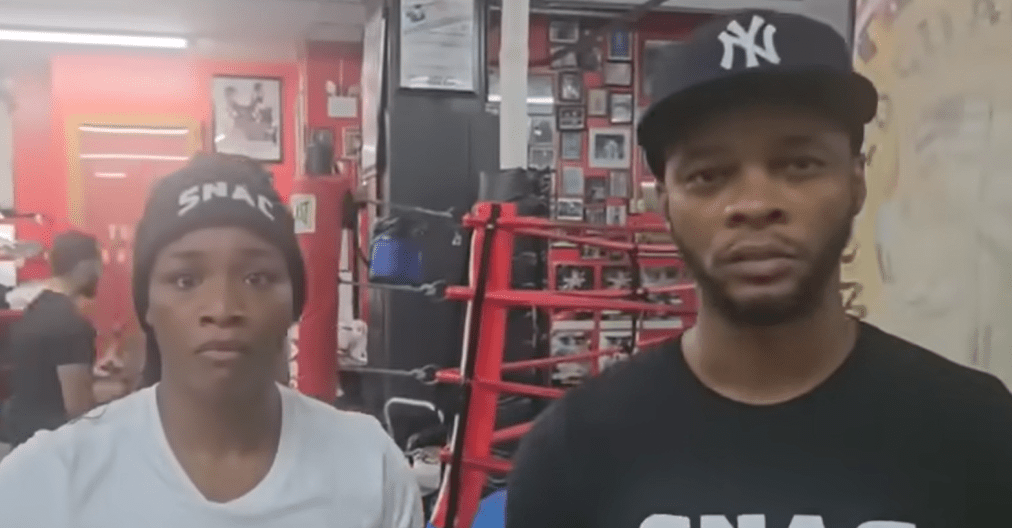Papoose – Biography and Career Summary
| Full Name | Shamele Mackie |
|---|---|
| Stage Name | Papoose |
| Date of Birth | March 5, 1978 |
| Birthplace | Brooklyn, New York, USA |
| Profession | Rapper, Songwriter, Reality TV Personality |
| Known For | Lyrical mixtapes, The Nacirema Dream, VH1 shows |
| Active Since | 1998 |
| Estimated Net Worth | $500,000 (as of 2025) |
| Relationship Update | Divorcing Remy Ma, linked to boxer Claressa Shields |
| Source | www.celebritynetworth.com |

A strikingly clear illustration of how artistic perseverance, moral rectitude, and cultural coherence can coexist with modest financial gain can be found in Papoose’s financial story. Papoose has chosen a completely different path—one that is slow, methodical, and based on lyrical craftsmanship—than other rappers who amass millions of dollars through label deals, product endorsements, and viral trends.
From his early years in Brooklyn, where he grew up in the Bedford-Stuyvesant neighborhood, Papoose established his reputation through his love of wordplay, which brought him underground fame, rather than through ostentatious marketing. His gritty cadence made an immediate impression on Kool G Rap’s Roots of Evil album, which gave him his first national exposure in 1998. He then started releasing mixtapes on his own, which was a very ingenious move at a time when major labels controlled distribution.
Papoose’s popularity quickly increased by utilizing his street cred and collaborating with DJ Kay Slay. Their partnership was especially fruitful, resulting in a number of tapes, including Second Place is the First Loser, Unfinished Business, and Street Knowledge. His remarkable command of language was demonstrated by these releases, and despite his limited mainstream exposure, his fan base continued to grow.
A $1.5 million deal with Jive Records in 2006 appeared to portend a financial breakthrough. However, Papoose made the difficult but calculated choice to leave after his first studio album was delayed for several months. His immediate income was drastically cut by that choice, but he was still able to maintain creative control. Resuming independent releases with DJ Kay Slay, he contributed to an expanding body of lyrical work that strengthened his reputation.
Finally, in 2013, The Nacirema Dream became a reality. Years in the making, the project included a variety of partnerships with musicians such as Mobb Deep and Erykah Badu. Although it didn’t reach the top of the charts, it was incredibly successful in re-establishing Papoose as a significant lyrical contributor to hip hop. His technical accuracy stood out in an era of streaming where melody and repetition rule, particularly for fans who are looking for authenticity.
Continued releases over the following few years included Endangered Species (2020), Underrated (2019), and You Can’t Stop Destiny (2015). Each possessed the distinctive characteristics of his artistry—tight verses, narrowly focused stories, and no acquiescence to popular formulas—even though none of them achieved platinum sales. Papoose’s strategy is still remarkably similar to that of jazz musicians or poets: highly regarded, albeit not extremely lucrative.
Outside of the microphone, he reached a wider audience through his reality TV appearances alongside his wife, Remy Ma. On Love & Hip Hop: New York, the couple’s dynamic was surprisingly sincere, focused more on respect and loyalty than on drama. They quickly rose to prominence on the program and starred in Remy & Papoose: Meet the Mackies, a spinoff. In addition to creating a new source of income, this changed his public persona to one of a family man who values emotional and interpersonal integrity.
When Papoose and Remy Ma’s divorce was officially finalized in 2025, that image was put to the test. His relationship with professional boxer Claressa Shields was made public at about the same time. Shields praised their relationship during an appearance on The Breakfast Club, calling it supportive and emotionally rooted. Even though these kinds of personal changes may seem worthy of a tabloid, they frequently have an impact on media coverage and public opinion, which can tangentially impact brand value.
Financially speaking, Papoose’s $500,000 reported net worth shows a very independent trajectory. He is not at the top of Spotify’s worldwide charts, nor is he associated with any international fashion brands. But his brand, which is based on lyricism, loyalty, and consistency, is incredibly resilient. Music royalties, appearance fees, TV contracts, and merchandise are some of the sources of revenue. He also made an appearance in the feature film Righteous Kill, where he briefly shared the screen with well-known actors Robert De Niro and Al Pacino.
In hip-hop, where material success is frequently confused with artistic ability, Papoose’s path is especially avant-garde. He has managed to stay visible and relevant by navigating a system that is not intended for reflective, traditional lyricists. His continued presence acts as a subdued critique of a sector that frequently discards its talent too soon in pursuit of innovation.
He has created a career that is remarkably distinct in its identity, despite not being extremely profitable, by keeping control over his catalog and avoiding over-commercialization. He is often mentioned as a lyrical influence by younger artists, and his guidance has assisted many in navigating a field full of short-lived fame traps.
Rap has undergone significant change in the last 20 years. Trends change incredibly quickly and are frequently determined more by social media virality than by creative depth. But despite everything, Papoose stays grounded. He creates legacies rather than chasing moments. His body of work, public persona, and personal philosophy are examples of how to endure in a rapidly changing society.
